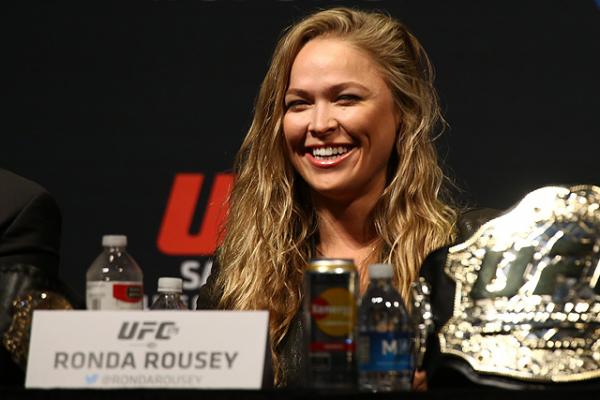Over the past decade, the Ultimate Fighting Championship and mixed martial arts have experienced a massive increase in popularity. The big fights and the superstars that fight in them have propelled the industry into the mainstream, but what is the appeal? Let’s take a look at how the UFC developed to become one of the most profitable sports organizations in the world through its mainstream appeal.
A big part of the appeal of the UFC is the ability to wager cash on who is going to win. While you can do that with any sport, it feels like there’s more at stake when it’s a fight. You can find MMA betting odds at Fanduel and similar sportsbooks.
When it was first founded, the UFC was a pariah when it came to sports. They didn’t have .any of the rules they have now, there were no judges, time limits or even gloves. It was seen as a brutal, underground sport that attracted a certain crowd, but certainly not the mainstream sports fan.
The UFC started with an interesting question: how would different fighting styles perform against one another? At the first UFc event in 1993, eight fighters of different styles fought one another to answer that question. From there, they found an audience before becoming promptly banned in 36 states. Despite being driven underground, it continued to rise in popularity.
It was the arrival of Dana White and the Fertitta brothers that began the UFC’s transformation into an organization with mainstream appeal. Joining in 2001, the three businessmen started to clean up the sport to get rid of its poor reputation. They did this by petitioning for regulation by state governments and formalizing the fighting process. Time limits, rounds, and scoring systems were introduced. Now, the UFC is legal in every U.S. state.
The UFC even took the additional step to put anti-doping measures in place too. They hoped this would improve the mainstream perception of MMA. The inspiration came from the competing boxing industry, but cut away a lot of the fat. There are also only eight weight classes, which make it easier to understand for mainstream fans. The UFC has many fight cards with a lot of feature fights, as opposed to boxing cards, which mostly focus marketing on the main event.
Since it had to work its way into the mainstream, the UFC and other MMA institutions had to embrace new and experimental methods to get a much-needed competitive edge. UFC used the emerging internet to market events and build a following online, establishing a presence that exists to this day. Dana White was very active in the early days of Twitter, marketing the UFC through his social media presence. Individual stars are encouraged to gather followings on Twitter, Instagram, and Facebook too, with big stars like Conor McGregor having tens of millions of followers.
No explanation is needed as to why establishing an internet presence was very important in mainstreaming the sport. The UFC still uses it as a marketing platform to great effect, whether that’s via streaming services or through podcasts that interview their fighting stars and other industry professionals. While not officially a UFC operation, UFC commentator Joe Rogan has one of the most popular podcasts in the world and frequently brings fighters on, making the sport more mainstream among general audiences.
As for the mainstream media’s interactions with the UFC, it should be noted that the UFC did create a reality show called The Ultimate Fighter in 2005, which was recently revived. This helped lift the organization out of dire financial straits at the time and allowed the average person a window into the world of competitive MMA.
Similarly, UFC fighters have also made the leap from the MMA industry to the big screen. Actors like Randy Couture, Chuck Liddell, Ronda Rousey, and Gina Carano have all landed movie and/or TV roles that made the fighters familiar faces with mainstream audiences.
The mainstream appeal of the UFC has skyrocketed in the last decade. With a combination of an ESPN deal, streaming services, legalized sports betting and star appeal, the promotion continues to gain popularity among mainstream sports fans.

